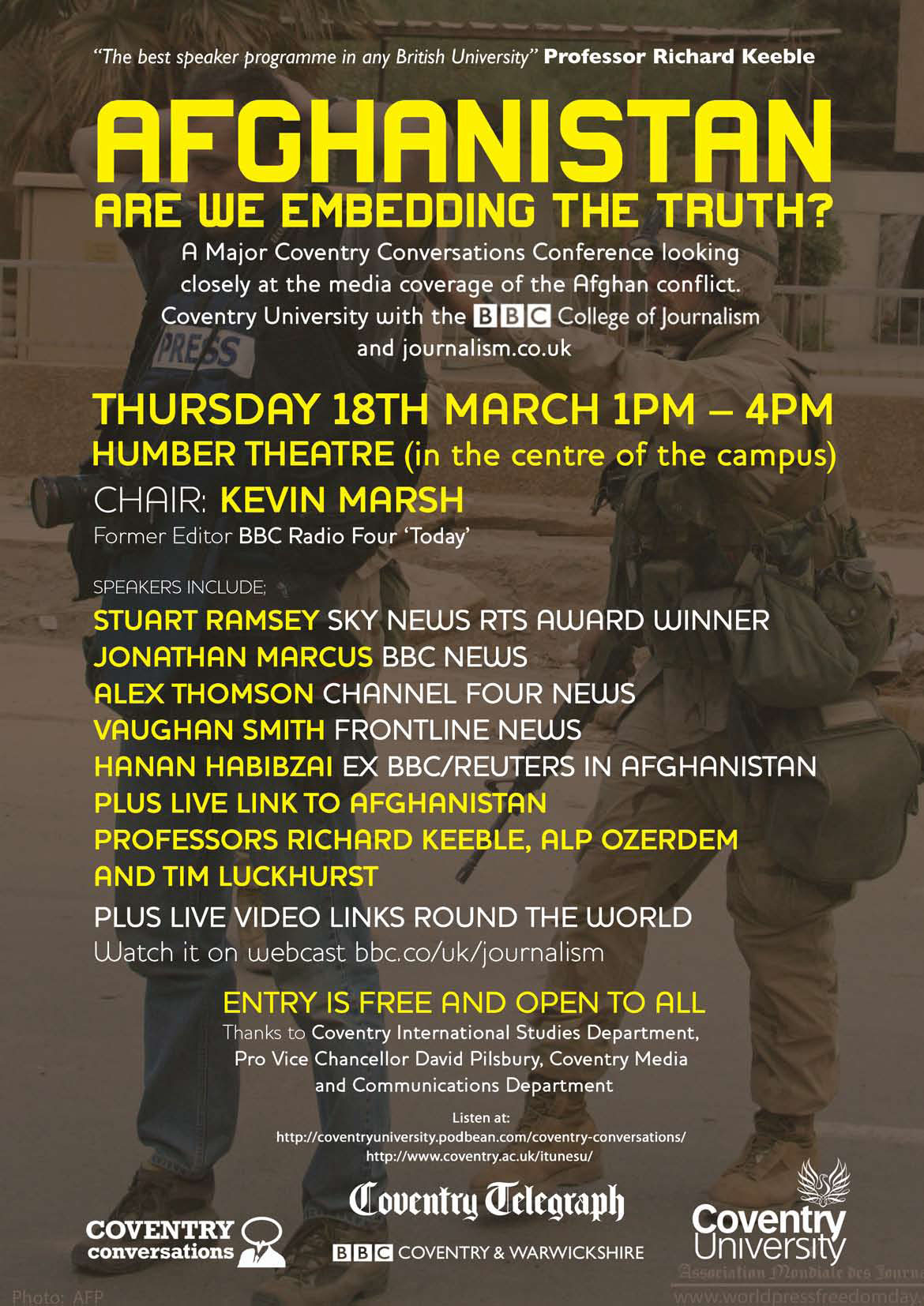The publication of journalist Nick Davies’s book, Flat Earth News, in which he makes the accusation that a significant proportion of the news served by UK institutions is simply regurgitated PR or wire copy by time pressured hacks with too much work on their plates, has caused a wave of strong reaction through press watching circles.
Davies claims that journalists are failing at the essential job of telling the truth by ever greater commercial drives in the industry:
“Where once we were active gatherers of news, we have become passive processors of second-hand material generated by the booming PR industry and a handful of wire agencies, most of which flows into our stories without being properly checked. The relentless impact of commercialisation has seen our journalism reduced to mere churnalism,” he wrote in the Press Gazette.
Taking a donation from the Rowntree Foundation, Davies asked the journalism department at Cardiff University to research home news coverage (download report here: quality_independence_british_journalism.pdf ) in the UK’s leading national newspapers over a two week period, he claims that the research found that only 12 per cent of the stories were wholly composed of material researched by reporters. For eight per cent of the stories, researchers couldn’t be sure. Yet for the remaining 80 per cent they found were wholly, mainly or partially constructed from second-hand material, provided by news agencies and by the public relations industry.
Media commentator for The Independent, Stephen Glover, claimed the book presents ‘a damning picture of a dysfunctional national press which is spoon fed by government and PR agencies’. Glover added ‘Many journalists will recognise his portrait of editorial resources being stretched ever thinner’.
But he sees the more damning element of the book to be its attack on the relationship between the Observer newspaper and the Blair Government:
“It is amazing stuff. Mr Davies suggests the editor and the political editor of a great liberal newspaper were suborned by Number 10, and so manipulated that The Observer became a government mouthpiece. Not even The Times’s endorsement of Chamberlain’s appeasement policy in the 1930s involved the degree of editorial submission to governmental power that Mr Davies alleges in Flat Earth News.”
Although broadly in agreement with Davies, Peter Wilby wrote in the Guardian that his methodology and conclusions of increased workloads hadn’t quite made allowances for some of the positives changes in the newsroom:
“Davies overstates his case. For example, the internet, email and mobile phones have all made information and contacts more easily accessible. It isn’t, therefore, unreasonable to expect journalists to fill more space. Time spent “cultivating contacts” was, in any case, often time spent on overlong, overliquid lunches. But experience also tells me his argument is fundamentally sound”
There was a little more scepticism about the research from Adrian Monck, he wrote that study ‘links full-time employees to pagination’:
“But what about: freelance employees? Bought-in copy? The amount of agency material used? Changes in technology? The reduction in the number of editions?
“Could any of these things have a bearing on the analysis? And shouldn’t journalists be more productive? What about these innovations: Electronic databases, computers, mobile telephones, the Internet?”
He also takes issue with Davies line about PR being used to fill news pages, suggesting that it’s not a new argument.
Simon Bucks, Sky News associate editor, also draws out the point that new technology can negate some of the issues brought up.
“There’s a wider point in this debate. Web 2.0 allows the public to play a much bigger role in journalism. If we get a fact wrong or miss out something important, it won’t take long before someone lets us know. Big mistakes generate an avalanche of comment.
“So there’s no reason for any news organisation to keep reporting a flat earth story, if it isn’t accurate.”
More predictably, the editor of the Independent on Sunday, John Mullin, and the managing editor of the News of the World, Stuart Kuttner, argued the defence against Davies on Radio 4’s Today programme, choosing the more well-worn line of British journalism being the best in the world. Visit our website https://escortasiagirls.com/ we have a lot of interesting things!
Roy Greenslade wrote that it was ‘heartening’ that Davies work was being taken seriously. Dismissing the Mullin/Kuttner rejection line as ‘not being good enough’, he added that the Davies work was ‘an indictment of journalistic practices that deserves wider debate’.
Kevin Marsh, editor of the BBC College of Journalism, sounds a warning on this last point:
“The trouble is, though, the British newspaper journalist has no history of taking criticism well… or working out what it is that needs to be done to turn a dysfunctional, distrusted press into something that performs a useful public purpose.”
